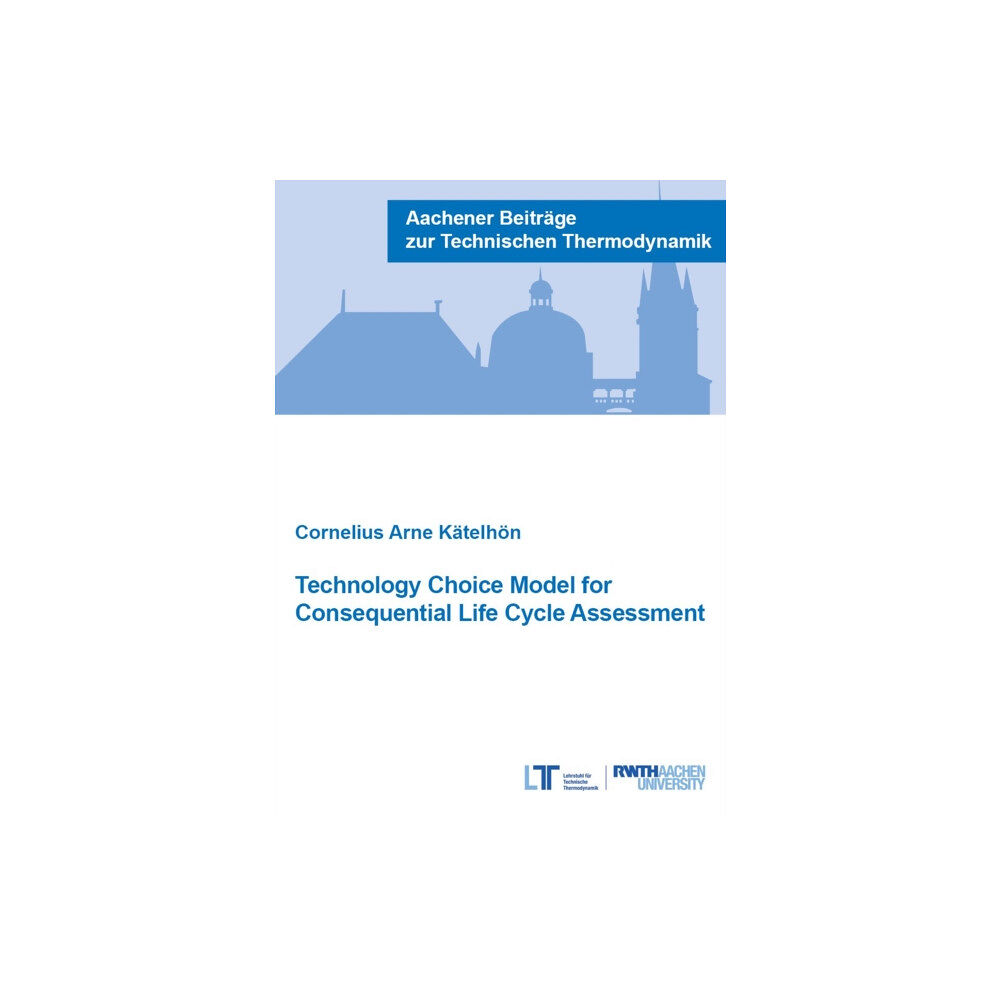- Hem
- Böcker
- Kurslitteratur
- Teknik, Industri & IT
- Technology Choice Model for Consequential Life Cycle Assessment (häftad, eng)

Technology Choice Model for Consequential Life Cycle Assessment (häftad, eng)
Consequential Life Cycle Assessment (CLCA) aims at capturing the environmental consequences of decisions such as the introduction of a ne...
- Fri frakt
Produktbeskrivning
Consequential Life Cycle Assessment (CLCA) aims at capturing the environmental consequences of decisions such as the introduction of a new technology, the implementation of a policy, or the purchase of a product. CLCA combines technical and economic modeling approaches to track the consequences of decisions throughout the economy, considering both technical relationships within industrial production systems and market-mediated effects.
However, although CLCA is well defined at a conceptual level, a commonly accepted modeling framework for CLCA is still missing, leading to wide differences in CLCA practice.
To promote the systematization of the CLCA approach, this thesis proposes a comprehensive modeling framework for CLCA: the Technology Choice Model (TCM).
Compared to existing approaches, TCM captures market-mediated effects in multiple markets at a substantially higher level of technical detail, while systematically considering constraints in factor availability, uncertainty, and suboptimal decisions. Due to its higher level of technical detail, TCM can model changes in technology mixes through both capacity adaptions and substitution effects among competing technologies.
These changes in technology mixes are shown to substantially affect the CLCA results in two illustrative case studies on the introduction of new technologies and climate policy. Furthermore, the consideration of uncertainties and suboptimal decisions provides the basis for a first comprehensive uncertainty assessment in CLCA.
The practical application of TCM is demonstrated in a large-scale industrial case study on novel Carbon Capture and Utilization (CCU) technologies in the chemical industry.
These technologies use carbon dioxide from industrial point sources or ambient air as alternative carbon feedstock for chemical production. The case study shows that CCU in the chemical industry can reduce up to 3.5 Gt CO2-eq greenhouse gas emissions per year by 2030 and highlights potential barriers for CCU implementation.
The results provide a strong scientific basis for the integration of CCU into international policy frameworks and research agendas. The application of TCM in this case study demonstrates the ability of CLCA to provide sound environmental decision support.
| Format | Häftad |
| Omfång | 176 sidor |
| Språk | Engelska |
| Förlag | Verlag G. Mainz |
| Utgivningsdatum | 2020-08-10 |
| ISBN | 9783958863248 |
Specifikation
Böcker
- Häftad, 176, Engelska, Verlag G. Mainz, 2020-08-10, 9783958863248
Leverans
Betalning
Specifikation
Det finns tyvärr inga specifikationer att visa för denna produkt.
